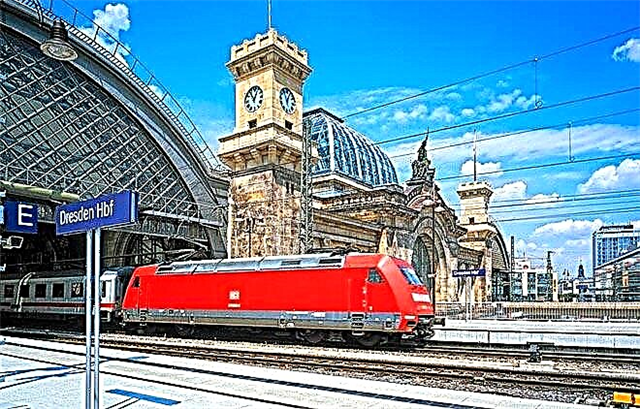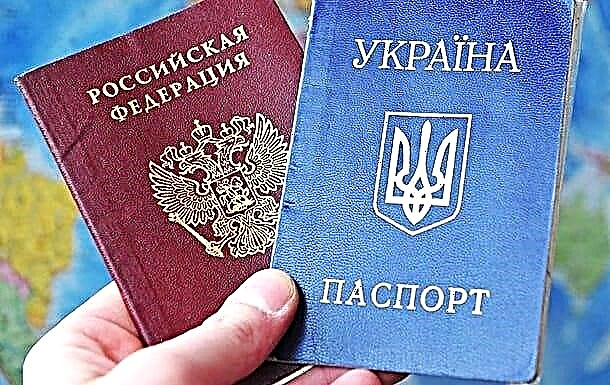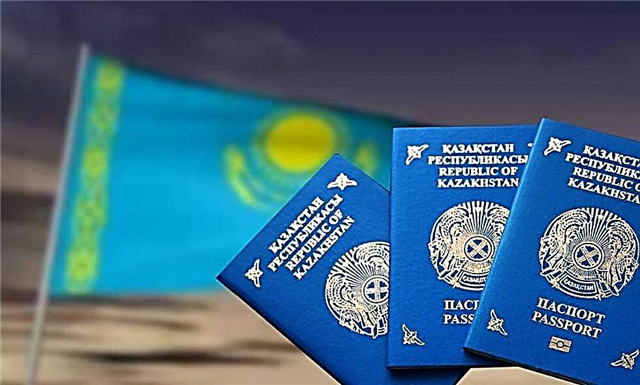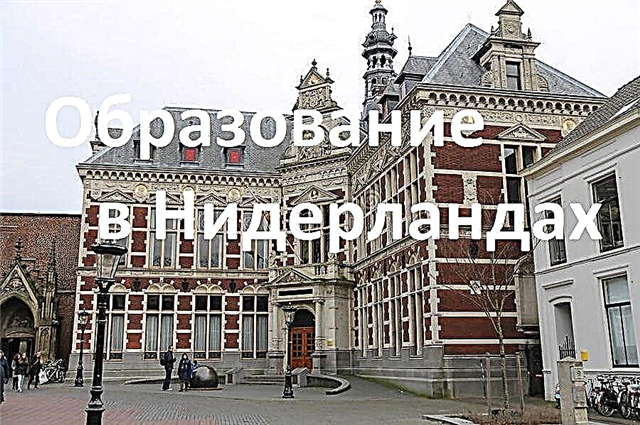The Netherlands is a country with a high level of academic culture. Studying in this country and a Dutch diploma open up broad prospects for research work and subsequent employment for students from all over the world.
Features of higher education in the Netherlands
The reasons why students choose education in the Netherlands are as follows:
- Integration of the country into the Bologna process, which allows students to actively participate in exchange programs;
- High quality of higher education and a world-class diploma;
- Convenient geographical location of Holland, membership in the European Union and the Schengen Agreement;
- The possibility of an official part-time job while studying;
- A large number of English-language training programs, which the Netherlands was one of the first in Europe to introduce into routine practice;
- A significant proportion of international students and teachers from all over the world;
- The possibility of free education, incl. with reimbursement of expenses for food and accommodation at the expense of the state, university or various funds;
- Almost universal knowledge of the local population in English;
- High-quality material and technical base of universities;
- Low crime rate in the country;
- The possibility of official residence and employment in the Netherlands for 12 months after graduation.

According to the Human Development Index, the Netherlands is consistently in the top ten. Universities are annually included in the most authoritative academic rankings: QS, ARWU, THE. From 3 to 7 universities are among the top 100 in the world. According to Quacquarelli Symonds, Delft University of Technology and Amsterdam University ranked 54th and 58th respectively.
An important feature of school education is its division into HAVO (basic secondary) and VWO (pre-university). The certificate of the CIS countries complies with HAVO and gives the right to enroll in a bachelor's degree in applied universities without passing entrance examinations. However, it is not enough in the case of an academic university: the applicant will need to complete 1 course of the institute in his country, pass exams or take preparatory courses.
The duration of training is standard for participants in the Bologna system:
- For most undergraduate specialties, it is 3-4 years, for master's degrees - 1-2 years.
- The longest educational programs at medical, pharmaceutical, dental faculties.
The academic year in the Netherlands lasts from September to June and consists of 2 semesters. Students are recruited for many programs at the beginning of each of them. Classes are divided into practical and lecture classes. There are no exam sessions. Knowledge control is carried out immediately after studying the subject in writing. By the end of the course, the student must write a scientific work.
The range of ratings is from 0 to 10 points:
- The minimum satisfactory score is 6;
- 8 already allows you to apply for a scholarship;
- Grades below 6 and above 8 are extremely rare.
Types of universities and educational programs
The system of higher education in the Netherlands is built on the Anglo-Saxon model, in which practical and research directions are clearly separated.
You May Also Like

The vast majority of universities belong to one of the following types:
- Academic universities: classical educational institutions that pay great attention to scientific work;
- Universities of Applied Sciences: Aimed at teaching students a specific profession.
A higher education diploma can be obtained by completing:
- Higher specialized school (with a focus on practical activities);
- Institute of International Education (targeted at international students);
- College;
- Business school.
In total, there are about 70 universities of various types in the Netherlands, 70% of which is privately owned.
The Bologna system implies a 3-stage education model:
- Bachelor's degree;
- Master's degree;
- Doctorate.
The task of the bachelor's degree is to master a profession of a practical orientation in 3-4 years. To complete it, you need to score 180 points on the ECTS credit system (1 point - 36 hours of studying 1 discipline). At this stage, about 60% of students graduate from their studies, the rest enter the master's programs.
The master's degree allows you to engage in scientific activities, get in-depth knowledge in the chosen specialty. The duration of study in the magistracy is 1 year for the humanities, 2 for the natural sciences, 3 for the medical disciplines.
To obtain a master's degree, an additional 120 credits must be added to the baccalaureate scores.
Conditions for admission
Any applicant who has completed 11 grades of the school can apply for admission to a Dutch university. Most universities of applied sciences run a certificate competition. Requirements may vary across academic institutions. In some cases, a certificate of completion of the first year of the local institute is required, in others - a certificate of passing the exam or passing the entrance test at the university itself.

You May Also Like
The only exam that every applicant will need is the language one. When studying in English, the number of points IELTS must be at least 6, TOEFL - from 550 with the standard version of the test. The requirements for a humanitarian specialty are stricter. In the case of Dutch, the NT2 certificate must be obtained.
There are also no master's exams. Enrollment of applicants takes place on the basis of a bachelor's degree, which is equivalent to a document on graduation from a university in a CIS member state. The decision on the suitability of academic programs remains with the selection committee.
List of required documents
Important! The time of acceptance of documents is set separately by each university. Typically, their submission to the undergraduate program begins at the beginning of the academic year in September and lasts until May 1. Documents for the master's program are accepted until July 1.
Requirements for the list of documents for admission to the 1st stage of education differ slightly depending on the university.
Sample list:
- Certificate of secondary education or certificate of graduation from school in the current year with transfer;
- Certificate of completion of the 1st course upon admission to an academic university with translation;
- Certificate of proficiency in Dutch or English;
- Copy of the passport;
- Photos;
- Motivation letter.
Upon admission to the 2nd stage of education, it is necessary to add to the above documents:
- Higher education diploma in the chosen specialty with translation;
- Academic resume (with a focus on research work);
- Resume and portfolio;
- Recommendations from the professors.
After entering the university, the student must apply for a long-term study visa and a residence permit for study, which allows a foreigner to stay in the Netherlands for more than 90 days. Registration of these documents will require financial guarantees in the amount of at least 11000 € or the availability of a grant / scholarship.
Cost of education
The cost of higher education in Holland differs significantly for EU citizens and foreigners. For the latter, the price is formed by the universities themselves. For a bachelor's degree, depending on the specialty, it fluctuates from 6 to 10 thousand euros per year. Getting a master's degree is more expensive: 7-20 thousand euros... And the cost of some MBA courses reaches up to 50 thousand euros.
In addition to the basic price, it is often necessary to pay extra for textbooks, traveling seminars (up to 1000 € per year).
Possibility of free education. Scholarships, grants
In order to attract motivated students in the Netherlands, various types of sponsorship are provided, for which one can apply, incl. Foreign citizens.
Grants (Holland Scholarship, Orange Tulip Scholarship) and scholarships (GoEuro, Erasmus) are funded from various sources:
- At the expense of the European Union;
- The Government of the Netherlands;
- University.
The grant can not only partially or fully cover the costs of training, but also offset the day-to-day expenses. Scholarships are awarded, as a rule, for 1 year with excellent academic or scientific achievements and are renewed with good academic performance.
Reference! Another opportunity for a Russian or Ukrainian to offset their tuition costs is a student loan, which is issued to some students by the Dutch government.
Internship and exchange studies
Holland's participation in the Bologna system and numerous intergovernmental agreements, incl. with Russia and Ukraine, allow students to take part in exchange programs.
Accommodation and meals for students
Only 20% of students are provided with housing on university campuses. 1st year students and exchange program participants enjoy the advantage. The rest are forced to solve the housing issue on their own. The minimum cost of renting a 1-room apartment in a residential area of Amsterdam starts from 400 €.
Average food costs are about 400 € per month.
According to the Dutch Immigration Service, the annual living costs and daily needs of the student are approaching to € 11,000.

Top universities in the country
The top five universities in Holland include:
- University of Amsterdam (Universiteit van Amsterdam, UvA). The largest educational institution in the country with a 400-year history. More than 30 thousand students study at 7 faculties. The leading areas are the humanities, social sciences and medicine.
- Delft University of Technology (Technische Universiteit Delft). Leading engineering university in the Netherlands, member of the IDEA League. The number of students - about 15 thousand, teachers - 2.5 thousand. The university is divided into 8 faculties, including architecture, aerospace, the faculty of civil engineering and earth sciences, etc. With the universities of Twente and Eindhoven, they form the Federation 3TU.
- Utrecht University (Universiteit Utrecht). One of the richest universities in the Netherlands: its annual budget is approaching 1 billion euros. 30 thousand students (about 2000 foreign citizens) study at 10 faculties. The leading areas of education are the humanities and creative disciplines.
- University of Groningen (Rijksuniversiteit Groningen). Leads its history from the beginning of the XVII century. Member of the Coimbra Group, consists of 9 faculties. He specializes in research in the field of chemistry, ecology, biotechnology, medicine. The total number of students is over 30 thousand.
- Leiden University (Universiteit Leiden). The oldest university in Holland, it includes about 150 areas of study at 9 faculties and 40 institutes. Known for his research in medicine, archeology, social sciences.
Reviews
Maria:Dutch law allows students to officially earn up to 10 hours a week. I actively used this, finding a job in my specialty on the 3rd year of my bachelor's degree.
Alexander: At universities of applied sciences, a lot of attention is paid to the practical orientation. This happens through internships, games, work on real projects. By the end of the 1st year of study, you have a complete picture of your future work.
Higher education in Holland is an excellent opportunity to get a diploma from the best European universities, and a large number of grants allows you to minimize training costs.











